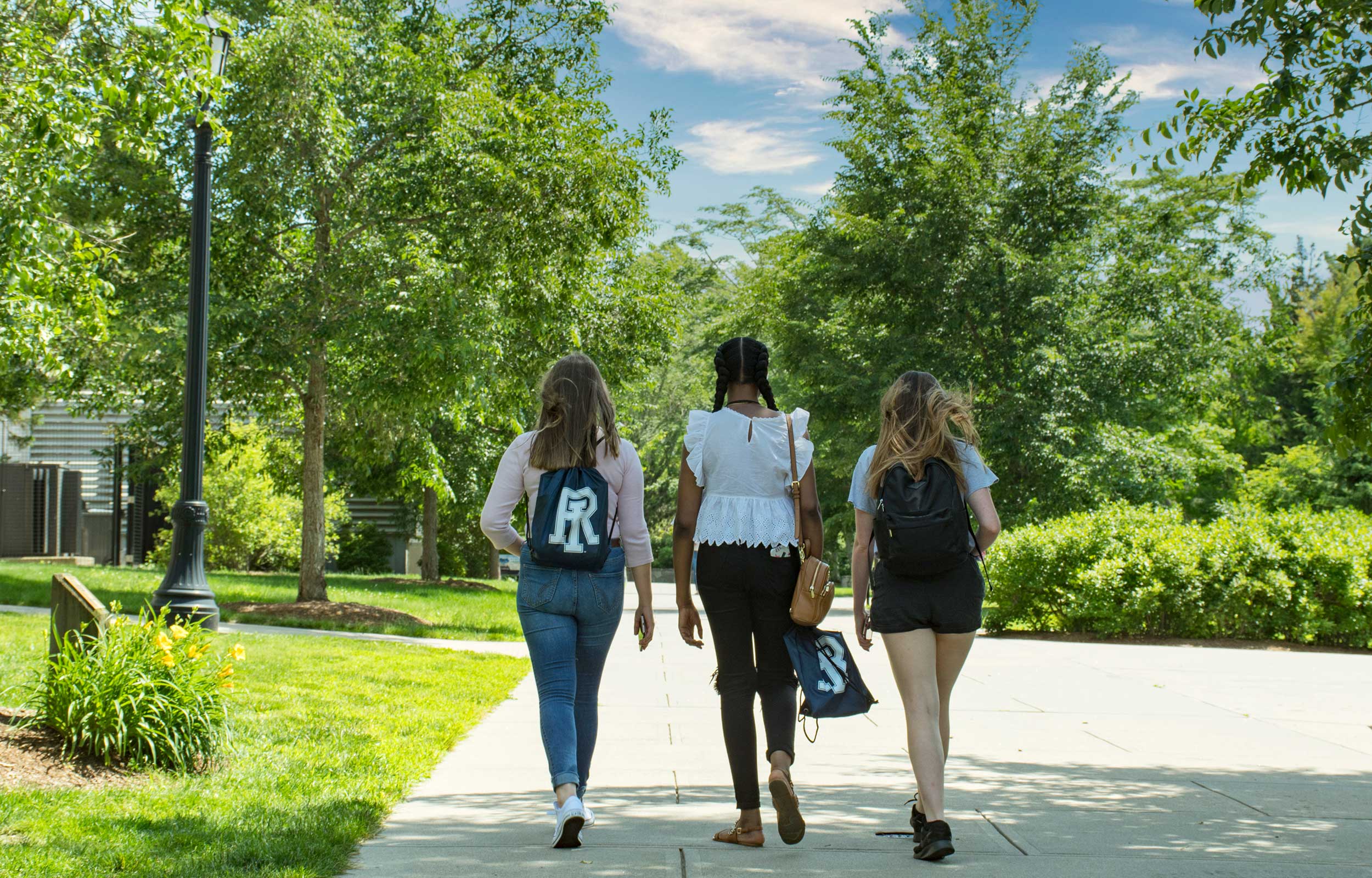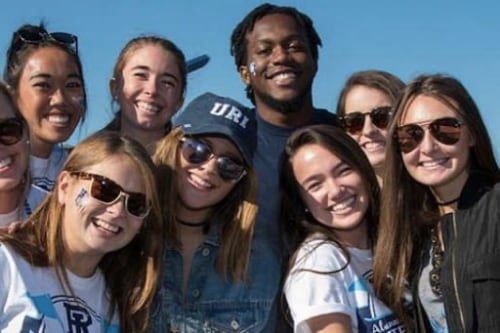
Graduate students Mariel Aleman ’22 and Molly Hovden ’21 say their encounters with strong leaders as undergrads led them both to pursue master’s degrees in college student personnel. They want to set a similar example for URI’s undergraduates.
Aleman, a graduate assistant in the Center for Student Leadership Development, and Hovden, a graduate assistant in the Office of Student Involvement are staging a leadership development conference for undergraduates called the SOUL Summit, held virtually on April 7 and 8. The theme is “Becoming Leaders of Tomorrow.”
Open to all undergraduates, the summit will offer workshops covering such topics as understanding and utilizing personality strengths, identifying and counteracting micro-aggressions, program planning, mindfulness and self-care, team building, and post-graduate service programs such as the Peace Corps or AmeriCorps.
Underpinning Aleman’s and Hovden’s message is their shared conviction that all students have leadership potential.
The idea that only a certain personality type—you might be thinking extroverted, bold, headstrong, and loud—is suited for leadership is a myth, Hovden says. Leadership, she argues, is a skill that allows for variations in style.
“Leadership can look very different depending on who you are as a person. You can leverage your unique strengths and talents,” Hovden says. “Being able to see yourself as a leader is so important and that process begins with people believing in you.
“A big part of my leadership journey was having mentors, supervisors, and leadership affairs professionals who believed in me and built my confidence to lead.”
The SOUL Summit is one of many signature University initiatives that encourage student involvement in organizations that offer leadership opportunities. Outreach starts early. Since URI hosts more than 100 clubs and organizations, incoming students may want to participate in the Office of Student Involvement’s Match Program, which offers students assistance in choosing organizations whose work aligns with their particular interests.
Aleman and Hovden are staging the conference under the direction the Center for Student Leadership, the Office of Student Involvement, and the Student Event Advising Office. They’ve also been advised by Annemarie Vaccaro, education professor and director of the college student personnel program, as part of a CSP graduate course on leadership and group development. Many of the workshop presenters are graduate students in the CSP program. Other summit presenters include the Student Organization Leadership Consultants, the Center for Career and Experiential Learning, and the undergraduate-led group Diversity Dialogues.
“Being able to see yourself as a leader is so important and that process begins with people believing in you.”Molly Hovden ’21
The role of mentors
After graduation, Hovden will begin a new position as assistant director of Career Development & Coaching at St. Olaf College in Minnesota. Aleman, who would one day like to be a chief diversity officer at a college or university, says it was the example of four mentors she encountered in her undergraduate education that set her on her intended career path. Their interest in her is a gift she would pay forward.
“A lot of the work that my mentors allowed me to do, whether it was helping them plan retreats or be a part of a student committee, drew me into diversity, equity, and inclusion work. My goal is to make systematic change where students feel supported,” Aleman says.
“I want to be the person who recognizes that each student I work with will have different needs, and I want to be the mentor that meets students where they are,” Aleman adds. “I want to recognize who a student is at their core and recognize what they need at any given moment.”
An added benefit of the summit, the two graduate students note, is the opportunity it provides the graduate student organizers and participants to hone their leadership skills through experiential learning.
“My fellow graduate students gain experience of how to facilitate workshops with undergrad students,” Aleman says, “because when we graduate from the program, this is going to be our life’s work.”
—Marybeth Reilly-McGreen

